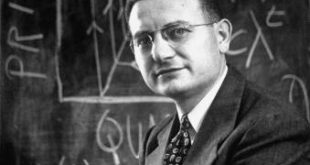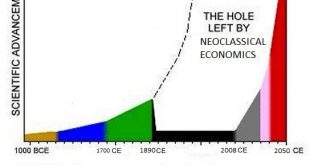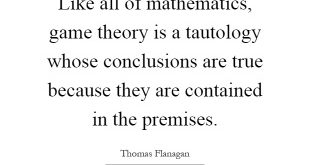Realism and critique in economics: an interview with Lars P. Syll Jamie Morgan: To a member of the public it must seem weird that it is possible to state, as you do, such fundamental criticism of an entire field of study. The perplexing issue from a third party point of view is how do we reconcile good intention (or at least legitimate sense of self as a scholar), and power and influence in the world with error, failure and falsity in some primary sense;...
Read More »Paul Samuelson — a case of badly invested intelligence
Paul Samuelson — a case of badly invested intelligence Paul Samuelson claimed that the ‘ergodic hypothesis’ is essential for advancing economics from the realm of history to the realm of science. But is it really tenable to assume that ergodicity is essential to economics? The answer can only be — as I have argued here here here here and here — NO WAY! Obviously yours truly is far from the only researcher being critical of Paul Samuelson. This is what Ole...
Read More »Scientific advancement in economics
Scientific advancement in economics Source
Read More »Time
[embedded content] Time is what prevents everything from happening at once. To simply assume that economic processes are ergodic and concentrate on ensemble averages — and hence in any relevant sense timeless — is not a sensible way for dealing with the kind of genuine uncertainty that permeates real-world economies. Ergodicity and the all-important difference between time averages and ensemble averages are difficult concepts — so let me try to explain the meaning of these...
Read More »Game theorists — people carried away by fictions
Game theorists — people carried away by fictions Applied game theory is a theory of real-world facts, where we use game theoretical definitions, axioms, theorems and (try to) test if real-world phenomena ‘satisfy’ the axioms and the inferences made from them. When confronted with the real world we can (hopefully) judge if game theory really tells us if things are as postulated by theory. But there is also an influential group of game theoreticians that...
Read More »What can we learn from economic models?
What can we learn from economic models? Some economic methodologists have lately been arguing that economic models may well be considered ‘minimal models’ that portray ‘credible worlds’ without having to care about things like similarity, isomorphism, simplified representationality or resemblance to the real world. These models are said to resemble ‘realistic novels’ that portray ‘possible worlds’. And sure: economists constructing and working with that...
Read More »Om vådan av att läsa nationalekonomi
Om vådan av att läsa nationalekonomi För egen del … måste jag läsa lika nödvändigt som jag måste andas, och jag kan numera läsa så gott som allt som är någorlunda mänskligt skrivet och har innehåll … Men bestämda undantag finnas, som jag aldrig kommer att kunna bemästra; liksom vissa människor med god aptit bli sjuka vid tanken på ål eller må illa av musslor. Jag kan inte läsa juridik; inte heller nationalekonomi … Försöker jag mig på den sortens ting,...
Read More »The explanation paradox in economics
The explanation paradox in economics Hotelling’s model, then, is false in all relevant senses … And yet, it is considered explanatory. Moreover, and perhaps more importantly, it feels explanatory. If we have not thought much about Hotelling’s kind of cases, it seems that we have genuinely learned something. We begin to see Hotelling situations all over the place. Why do electronics shops in London concentrate in Tottenham Court Road and music shops in...
Read More »The logic of economic models
The logic of economic models Analogue-economy models may picture Galilean thought experiments or they may describe credible worlds. In either case we have a problem in taking lessons from the model to the world. The problem is the venerable one of unrealistic assumptions, exacerbated in economics by the fact that the paucity of economic principles with serious empirical content makes it difficult to do without detailed structural assumptions. But the worry...
Read More »Self-righteous Chicago drivel
In 2007 Chicago überpriest Thomas Sargent gave a graduation speech at University of California at Berkeley, giving the grads “a short list of valuable lessons that our beautiful subject teaches”: 1. Many things that are desirable are not feasible. 2. Individuals and communities face trade-offs. 3. Other people have more information about their abilities, their efforts, and their preferences than you do. 4. Everyone responds to incentives, including people you want to help. That...
Read More » Heterodox
Heterodox










